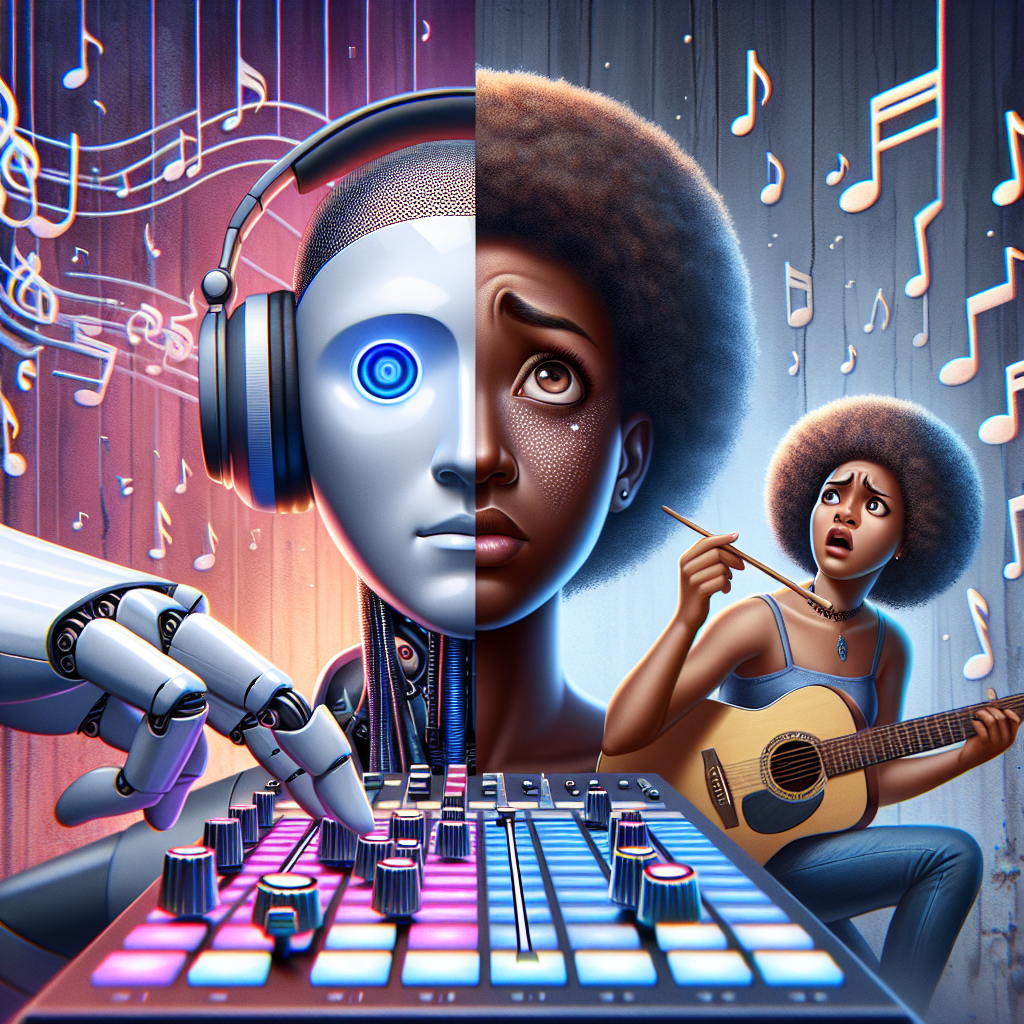AI and Music Production: Enhancing Creativity or Limiting Artistry?
In recent years, artificial intelligence (AI) has made significant strides in various industries, including music production. AI technologies are now being used to assist musicians and producers in creating, composing, and arranging music. While AI has the potential to enhance creativity and streamline the music production process, some argue that it may also limit artistry and the human touch that makes music unique. In this article, we will explore the role of AI in music production, its benefits and limitations, and its impact on creativity and artistry.
The Role of AI in Music Production
AI has the capability to analyze vast amounts of data and recognize patterns, which makes it a valuable tool for music production. AI algorithms can analyze music trends, predict hit songs, and even generate music compositions. For example, AI-powered music composition tools like Amper Music and AIVA can create original music tracks based on user preferences and input. These tools can save time and effort for musicians and producers, allowing them to focus on other aspects of their craft.
AI can also assist in mixing and mastering music. AI-powered software like LANDR and Ozone can automatically adjust levels, EQ, and compression to achieve a professional-sounding mix. These tools can help musicians and producers achieve a polished and professional sound without the need for extensive technical knowledge or experience.
Furthermore, AI can be used to enhance live performances. AI-powered software like Ableton Live and Native Instruments’ Komplete Kontrol can analyze audio signals in real-time and generate live effects, loops, and arrangements. This can add a new dimension to live performances and allow musicians to experiment with different sounds and textures.
Benefits of AI in Music Production
There are several benefits to using AI in music production:
1. Efficiency: AI can analyze data and generate music compositions much faster than humans. This can save time and effort for musicians and producers, allowing them to focus on their creative process.
2. Access to tools and resources: AI-powered music production tools are often affordable and accessible, making them available to a wider range of musicians and producers. This can democratize music production and provide opportunities for aspiring artists to create high-quality music.
3. Inspiration: AI can generate music compositions and ideas that may inspire musicians and producers to explore new genres, styles, and sounds. This can expand creative horizons and lead to innovative and experimental music.
4. Collaboration: AI can assist musicians and producers in collaborating with other artists and producers. AI-powered tools can analyze and process audio signals in real-time, allowing for seamless communication and collaboration between musicians and producers.
Limitations of AI in Music Production
Despite its benefits, AI also has limitations in music production:
1. Lack of human touch: AI-generated music compositions may lack the emotional depth and nuance that human musicians bring to their music. AI algorithms can analyze data and generate music based on patterns, but they may struggle to capture the subtleties and nuances of human emotion and expression.
2. Creativity constraints: While AI can generate music compositions based on data and input, it may struggle to create truly original and innovative music. AI algorithms are limited by the data they are trained on, which may restrict their ability to create music that pushes boundaries and defies conventions.
3. Overreliance on technology: Relying too heavily on AI-powered tools can limit musicians and producers’ creativity and technical skills. Musicians and producers may become dependent on AI for generating music compositions, mixing, and mastering, which can hinder their ability to develop their own unique style and sound.
FAQs
Q: Can AI replace human musicians and producers?
A: While AI has the potential to assist musicians and producers in creating music, it is unlikely to replace human creativity and artistry. AI algorithms can analyze data and generate music compositions, but they may struggle to capture the emotional depth and nuance that human musicians bring to their music.
Q: Are AI-powered music production tools affordable and accessible?
A: Yes, many AI-powered music production tools are affordable and accessible, making them available to a wider range of musicians and producers. These tools can democratize music production and provide opportunities for aspiring artists to create high-quality music.
Q: How can AI enhance live performances?
A: AI-powered software like Ableton Live and Native Instruments’ Komplete Kontrol can analyze audio signals in real-time and generate live effects, loops, and arrangements. This can add a new dimension to live performances and allow musicians to experiment with different sounds and textures.
Q: What are the limitations of AI in music production?
A: AI-generated music compositions may lack the emotional depth and nuance that human musicians bring to their music. AI algorithms are limited by the data they are trained on, which may restrict their ability to create truly original and innovative music. Relying too heavily on AI-powered tools can also limit musicians and producers’ creativity and technical skills.
In conclusion, AI has the potential to enhance creativity and streamline the music production process. AI-powered tools can analyze data, generate music compositions, and assist in mixing and mastering music. However, AI may also limit artistry and the human touch that makes music unique. Musicians and producers should use AI as a tool to enhance their creativity and technical skills, rather than relying on it as a substitute for human creativity and expression. Ultimately, the combination of AI and human creativity can lead to innovative and groundbreaking music that pushes boundaries and inspires listeners.

